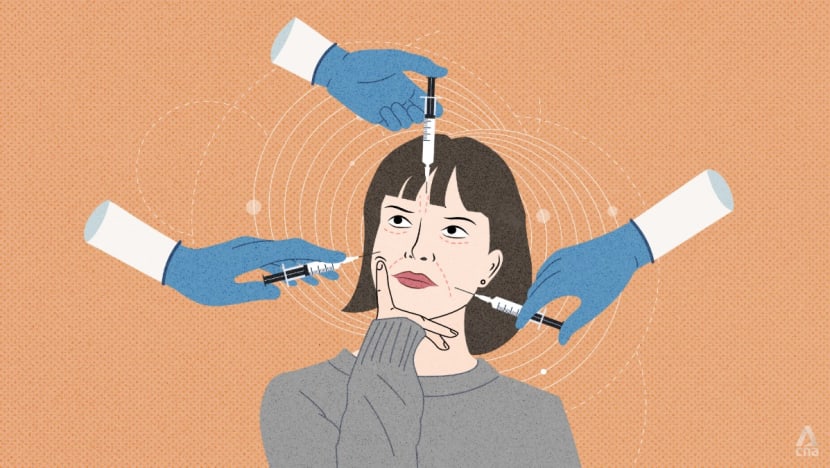Health
Can Botox Boost Self-Esteem? Experts Weigh In on Its Impact

The rising popularity of cosmetic procedures, particularly Botox, has sparked a debate about their impact on self-esteem. Experts suggest that the effectiveness of Botox in enhancing self-worth largely depends on an individual’s pre-existing feelings about themselves. This discussion comes amid a significant increase in the aesthetics industry, which has seen a marked rise in demand fueled by social media platforms.
The aesthetics market has grown rapidly over the past decade. According to the American Society of Plastic Surgeons, the number of Botox procedures has increased by over 800% since the year 2000, with more than 4.4 million procedures performed in the United States alone in 2020. This trend reflects a broader societal acceptance of cosmetic enhancements, yet it raises questions about the motivations behind these choices.
Experts in psychology and cosmetic medicine emphasize the dual nature of Botox’s effects. Dr. Sarah Thompson, a clinical psychologist, notes that while some individuals report enhanced self-esteem and satisfaction after receiving Botox, others may experience a temporary boost that fades quickly if deeper issues remain unaddressed. “Botox can serve as a confidence booster for those already feeling positive about their appearance,” she explains. “However, for individuals struggling with self-image, it may not provide the lasting change they seek.”
The relationship between cosmetic procedures and mental health is complex. A study published in the journal *Plastic and Reconstructive Surgery* found that patients who underwent aesthetic procedures often reported improvements in self-esteem post-treatment. Yet, the same research indicated that individuals with body dysmorphic disorder, a condition where one obsessively focuses on perceived flaws, may not experience the same benefits.
Public perception plays a crucial role in shaping attitudes toward cosmetic surgery. Social media platforms like Instagram and TikTok have normalized discussions around beauty enhancements, which can contribute to unrealistic standards. This environment can pressure individuals to pursue procedures in hopes of achieving an idealized version of beauty, potentially leading to unhealthy motivations.
In light of these societal pressures, health professionals advocate for a balanced approach to cosmetic procedures. Dr. Emily Chen, a dermatologist with extensive experience in cosmetic treatments, advises individuals to reflect on their motivations before pursuing Botox. “It’s essential to understand why you want the procedure,” she states. “If it’s to fit an external standard rather than for personal satisfaction, you might not find true fulfillment.”
As the aesthetics industry continues to thrive, the conversation around the implications of procedures like Botox will likely intensify. While many find value in these enhancements, it is crucial to consider the psychological aspects and ensure that individuals are making informed, healthy choices for their self-image.
Ultimately, the decision to undergo cosmetic procedures should be based on a comprehensive understanding of personal motivations and emotional well-being. As the landscape of beauty continues to evolve, fostering a healthy dialogue around self-esteem and body image remains essential for individuals contemplating such changes.
-

 World5 months ago
World5 months agoSouth Korea’s Foreign Minister Cho Hyun to Visit China This Week
-

 Business5 months ago
Business5 months agoStarling Bank Plans Secondary Share Sale, Targeting $5.4 Billion Valuation
-

 Top Stories5 months ago
Top Stories5 months agoMunsang College Celebrates 100 Years with Grand Ceremony
-

 World5 months ago
World5 months agoPAS Aims to Expand Parliamentary Influence in Upcoming Election
-

 Business7 months ago
Business7 months agoKenvue Dismisses CEO Thibaut Mongon as Strategic Review Advances
-

 Lifestyle6 months ago
Lifestyle6 months agoHumanism Camp Engages 250 Youths in Summer Fest 2025
-

 Sports6 months ago
Sports6 months agoDe Minaur Triumphs at Washington Open After Thrilling Comeback
-

 Sports7 months ago
Sports7 months agoTupou and Daugunu Join First Nations Squad for Lions Clash
-

 Top Stories7 months ago
Top Stories7 months agoColombian Senator Miguel Uribe Shows Signs of Recovery After Attack
-

 World7 months ago
World7 months agoASEAN Gears Up for Historic Joint Meeting of Foreign and Economic Ministers
-

 Health6 months ago
Health6 months agoNew Study Challenges Assumptions About Aging and Inflammation
-

 Business7 months ago
Business7 months agoOil Prices Surge Following New EU Sanctions on Russia









